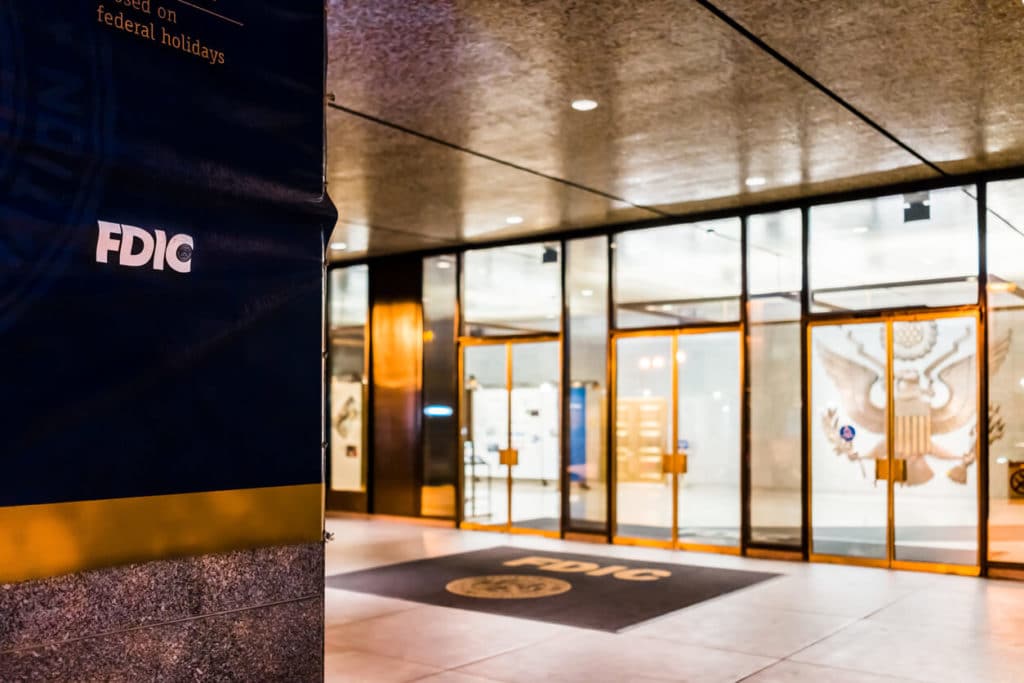While many were watching the Oscar’s, finance fans were watching the implosion of Silicon Valley Bank (SVB), the 16th largest bank in America.
For those interested, we wrote a brief, high-level summary of the collapse:
Naturally, this brings us to FDIC insurance.
FDIC insurance
Now’s probably a good time for a quick refresh:
- If your federally insured bank fails, Federal Deposit Insurance Corp. insurance keeps your money safe.
- The FDIC insures up to $250k per depositor, per institution and per ownership category.
- FDIC insurance covers deposit accounts and other official items such as cashier’s checks and money orders.
- If a bank is federally insured, it will have the FDIC insurance logo on its website.
Deposit accounts with FDIC insurance:
- Checking
- Savings
- Money market accounts
- CDs
- Cashier’s checks & money orders
- Negotiable order of withdrawal accounts
What isn’t protected by FDIC:
- Annuities
- Investments in stocks, bonds or mutual funds
- Losses incurred from investments, even if purchased from an insured bank
- Life insurance policies
- Contents of a safe deposit box house at a bank
- Municipal securities
Giannis knows about FDIC:
Giannis Antetokounmpo didn’t know much about investing, but he did put on one helluva MasterClass on FDIC Risk Management.
Unlike Giannis, most folks don’t need to spread their cash across 50 different bank accounts.
However, considering that FDIC protection is a little more complex than a straight $250,000 limit, we’ve provided some examples that hopefully give you a clearer understanding:
Example 1 – You’re single, do your banking in one place and you have:
- $50,000 in a checking account
- $100,000 in a savings account
- $200,000 in certificates of deposit
That’s a total of $350,000 deposited in one bank as one depositor (you), at one institution (your bank) and in one ownership category (single). If your bank were to fail, you’d could lose $100,000 because the FDIC would cover only up to $250,000.
Example 2 – You’re single but you do your banking at two banks, and you have:
- $50,000 in a checking account at Bank 1
- $200,000 in a savings account at Bank 1
- $250,000 in certificates of deposit at Bank 2
That’s a total of $500,000 deposited as one depositor (you) at two institutions (two banks) and in one ownership category (single). Since you have $250,000 at one bank and $250,000 at another bank, all of your money is protected.
Example 3 – You’re married, you both do your banking at the same place and together you have:
- $500,000 in a joint savings account shared with your spouse
- $250,000 in a certificate of deposit in just your name
That’s a total of $750,000. All of this money is protected. The joint savings account is one ownership category (joint), where both you and your spouse are covered up to $250,000 each since you are two different depositors. The certificate of deposit is in a second ownership category (single), so the depositor (you) is covered up to $250,000 for that account.
ANNOUNCEMENT FOR CLIENTS: FLOURISH CASH
Over the course of the past month wHealth Advisors has (somewhat serendipitously) partnered with Flourish.
What is Flourish?
Flourish is an online platform that allows customers to:
- earn a competitive APY
- 4.55% on first $500k for an individual account & $1M for joint, 3.00% on all balances above
- have increased FDIC coverage
- $1.5M FDIC coverage for individual accts
- $3M for joint
How do they do this?
Flourish sweeps customer cash into their FDIC-member program banks (they partner with 11 different banks).
- No minimums.
- No fees.
- Full liquidity (like a traditional savings account).
Accessible to wHealth Advisor clients only:
Flourish is not accessible to retail clients.
Clients: If you’d like to learn more, reach out to your advisor with questions, clarifications, or to request an invitation.
* Stated rates as of 5/11/2023






